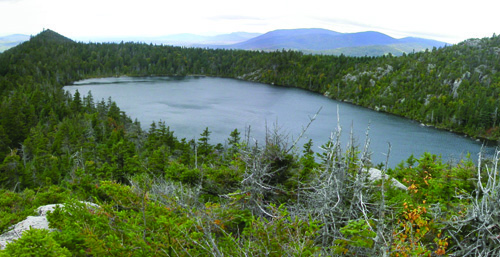
Assessing the effects of climate change on Maine’s lake water quality
Drinking water districts are facing challenges with the changing climate. Across Maine, there are more than 40 surface freshwater sources used for drinking water; 10 of these (including Bangor and Portland) are not filtered as part of the treatment process. Increasing lake water temperatures and DOC concentrations will alter biological activity in Maine’s lakes, yet it remains unclear what the implications will be for water treatment strategies to ensure potable water. This project will use physical, chemical, and biological data from contemporary and paleolimnological approaches to advance our understanding of climate-driven changes in Maine’s lakes. The project will clarify linkages among climate and changing chemical and biological constituents of lake water. This will inform water treatment strategies; in particular, whether modification to treatment is needed, for which constituents (e.g., chemical, biological), and to what degree. It is hoped that such information will be used to maintain the high quality of Maine’s drinking water without interruption.
Investigator: Saros, J.
Unit: School of Biology & Ecology
Termination Date: 30-Sep-18
